Posted on 7/31/2023

How to Maintain Your Steering and Suspension System The suspension and steering system should be well maintained to enhance comfort in your vehicle. A good suspension system works with the steering system to ensure proper handling, improving car safety. Carry out the following activities to ensure these systems are in good condition. Regular Inspections Regular inspections are crucial for identifying potential suspension and steering component issues. Start by visually inspecting various parts such as shocks, struts, ball joints, control arms, tie rods, bushings, and springs for signs of wear or damage. Look out for leaks around shock absorbers or any loose connections. Alignment Check Proper wheel alignment is essential for optimal handling characteristics and tire longevity. Misaligned wheels can cause uneven tire wear resulting in reduced traction and compromised safety on the road. Periodically checking wheel alignment ensures all four wheels are aligned according to manufac ... read more
Posted on 6/29/2023
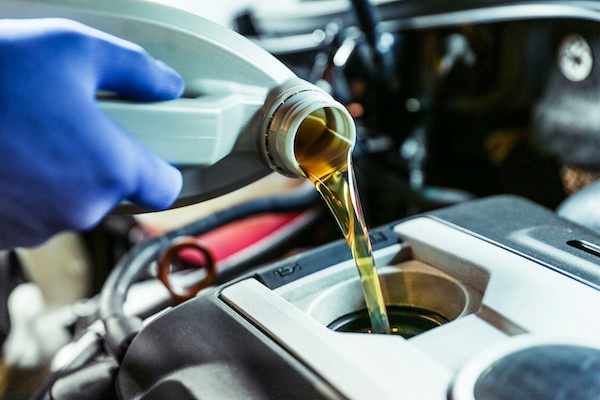
You've had the phrase said to you before An ounce of prevention is worth a pound of cure. This is especially true when it comes to maintaining your vehicle. Regular car maintenance is vital to maintaining a vehicle that lasts for years while maintaining a smooth riding experience. From oil changes to tire rotations, auto manufacturers recommend several maintenance tasks to keep your car running smoothly. Let's look at the importance of routine maintenance and why it's crucial to preserving the life of your car. Prevents Unexpected Breakdowns The most important benefit of regular car maintenance is preventing unexpected breakdowns. Regular oil changes keep your engine lubricated and running smoothly; failing to do so causes significant wear and tear on engine components, causing expensive repairs. Other maintenance tasks, like checking your car's brake pads and tire pressure levels, prevent breakdowns caused by worn-down components. Saves You Money and Time Regula ... read more
Posted on 5/30/2023
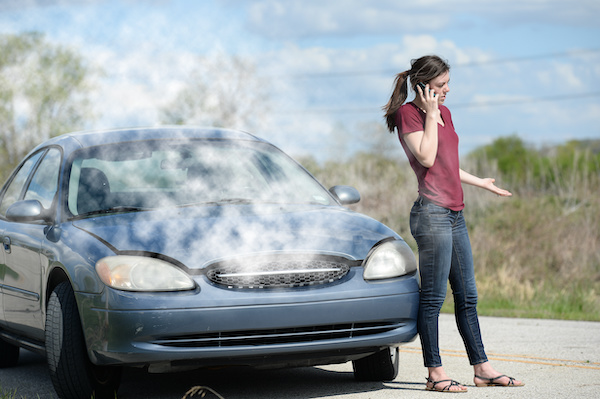
Has your vehicle suddenly come to an unexpected stop? Is your engine too hot for comfort? An overheated engine is a serious warning sign for any driver. It's important to understand the indicators of a bad engine so you can address the issue quickly before any further damage is done. Here are some common signs of an overheating engine: Temperature Gauge Reading: One of the clearest indicators of an overheated engine is if your temperature gauge is reading high. The normal temperature of an engine should stay between 195 to 220 degrees. Anything above that could indicate a problem. Steam or Smoke from Under the Hood: Strong-smelling steam or smoke coming from the hood of your car is a red alert. Seeing light white leaking. Dark, thicker smoke is a sign of burning oil, which could mean you need a major engine repair in the near future. Odd Sounds: Listen close ... read more
Posted on 4/15/2023
.jpeg)
April is National Car Care Month, and it's the perfect time to give your car some extra attention and ensure it's running smoothly. Regular maintenance is key to keeping your car in top shape and avoiding costly repairs down the road. Here are some words of advice to remember during National Car Care Month: Check your tires: In honor of National Car Care Month, you should make sure your tires are inflated to the right psi and have good tread depth. Underinflated tires can impact vehicle handling and increase fuel consumption, while tires with low tread depth can increase stopping distance and reduce traction. Change your oil and filter: Regular oil changes help keep your engine running smoothly and can prolong the life of your vehicle. You can refer to your owner's manual for the recommended oil change intervals and make sure to use the right type of oil for your car. Replace your windshield wipers: Spring showers can b ... read more
Posted on 3/30/2023
.jpeg)
As a car owner, you know that your car needs regular maintenance and tune-ups to keep running at its best. One important aspect of this maintenance is changing and replacing the various filters in your car. Below are the different types of filters that can be found in most vehicles: Air Filter: The air filter is an important part of your car's engine. It is responsible for filtering the air that enters the engine and removing any dirt, dust, or debris that could cause damage. Over time, the air filter can become clogged and dirty, reducing engine performance and fuel efficiency. It is recommended that you change your air filter every 12,000 to 15,000 miles or as needed. Oil Filter: The oil filter is responsible for removing any contaminants from the engine oil, keeping it clean and free-flowing. Over time, the oil filter can become clogged and dirty, reducing the efficiency of the oil and potentially causing engine damage. It is recommended that you change your oil filter every ... read more
Posted on 2/20/2023
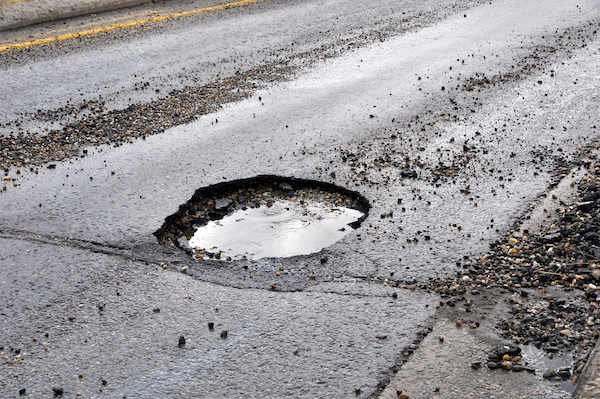
Potholes are a common sight on roads, especially during winter and spring months. They are caused by the contraction and expansion of water underneath the pavement, causing the pavement to weaken and ultimately give way. Potholes can cause a lot of damage to vehicles, from flat tires to suspension damage and more. As we approach National Pothole Month, it's important to understand how potholes can affect your vehicle and what you can do to avoid damage. Here are some things to keep in mind: Damage to Tires: Potholes can cause significant damage to your vehicle's tires, including punctures and tears. If you hit a pothole at high speed, it can also cause your tire to blow out. If you notice any damage to your tire, it's important to have it inspected by a professional as soon as possible. Suspension Damage: Potholes can also cause damage to your vehicle's suspension, including shocks, struts, and other components. Hitting a pothole at h ... read more
Posted on 1/30/2023
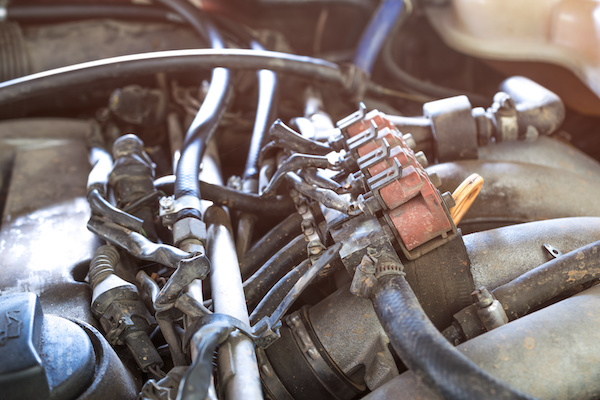
The fuel injection system in a vehicle is responsible for delivering fuel to the engine in the correct amount and at the right time. This system is made up of several different components, including the fuel pump, fuel filter, injectors, and the engine control module (ECM). Understanding how these components work together can help you diagnose and fix problems with your vehicle's fuel injection system. Fuel Pump: The fuel pump is in charge of transporting fuel from the gas tank to the engine. This is usually an electric pump that is located in the gas tank or near it. When the engine is running, the fuel pump sends fuel through the fuel filter and into the injectors. Fuel Filter: The fuel filter is used for removing any contaminants from the fuel before it reaches the engine. This helps to protect the injectors and other parts of the fuel injection system from damage. A clogged fuel filter can cause poor engine performance and reduced fuel econo ... read more
Posted on 12/23/2022
.jpeg)
The power steering has been used for several years, taking the hard work out of driving. Before the power steering was introduced, drivers applied more effort making driving a bit challenging. Original power steering systems mainly relied on hydraulic pumps for easy management. With technological advancement, we have electrical power steering that uses a warning light to indicate issues. The Power Steering Warning Light When your power steering develops a problem, a red or yellow warning sign in the shape of a steering wheel with an exclamation mark or EPS for electric power steering will appear on your car's dashboard. If you neglect the warning light and continue driving, you risk compromising your power steering system, damaging it more, and causing accidents. What the Power Steering Light Mean The power steering light largely depends on the car model and make and whether it's an electric or hydraulic system. Generally, when the light comes on, your car is about to los ... read more
Posted on 11/23/2022
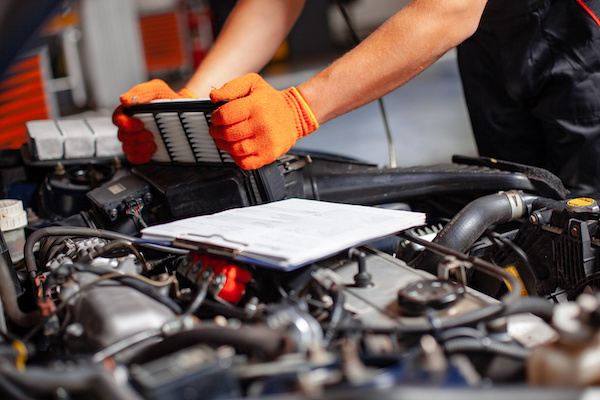
How are some vehicles from as early as the 2010s, 2000s, and even the 90s still on the road today, let alone reliable? Read on to learn how you can spend less on repairs, and get the most miles out of your vehicle. Tip #1: Don’t overlook smaller problems When you catch an odd sign, like a burning smell or knocking sound, with your vehicle, do not look past it. Smaller problems can lead to major ones if left unchecked. You can avoid them altogether if you go through regular vehicle inspections. Tip #2: Never skip oil changes Oil change services are the best maintenance you can get for your car. When you keep your engine supplied with clean motor oil, you significantly reduce engine wear and tear, which will make your vehicle last longer. You should have your oil changes done every 3,000 to 10,000 miles, depending on the oil your manufacturer recommends. Whatever you do, you should be consistent with your oil changes. Tip #3: Remember to keep fluids clean and full ... read more
Posted on 10/31/2022

Car noise is a significant issue for your car. While some strange car noises are nothing to worry about, others can indicate something serious that needs attention. It's always better to be safe than sorry, so if you hear any of these noises coming from your vehicle, don't hesitate to take it in for a check-up. Here are five common car noises you should never ignore: Screeching Exhaust When your exhaust leaks when accelerating, you get a deafening noise. Although the noise may not cause much harm, it does indicate that your exhaust system needs to be repaired. You probably need a new muffler or pipes. A grinding noise when you brake If you hear your brakes making a grinding noise, it could mean that you need to replace your brake pads. Brake pads wear out over time and eventually become worn out. As soon as you start hearing these types of noises, it's best to get your vehicle checked out by a professional. A Consistent Rattling Noise Loose parts inside your vehicle ... read more